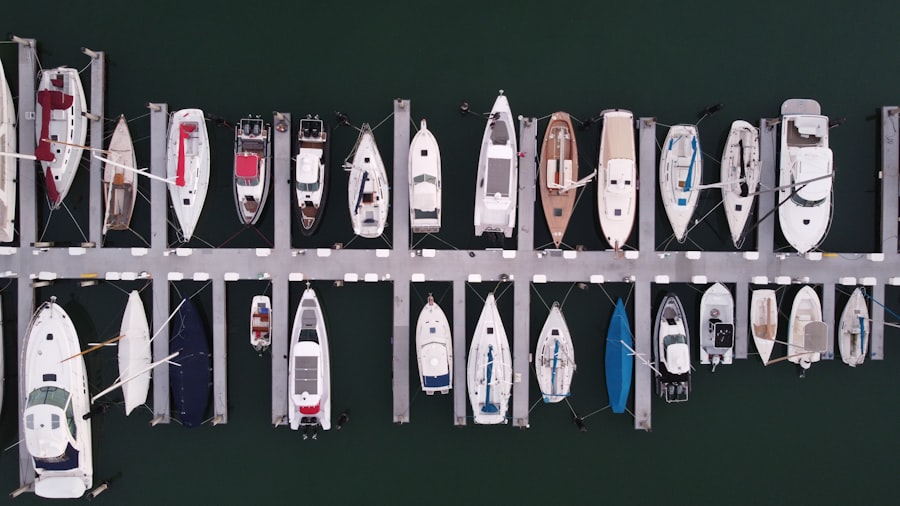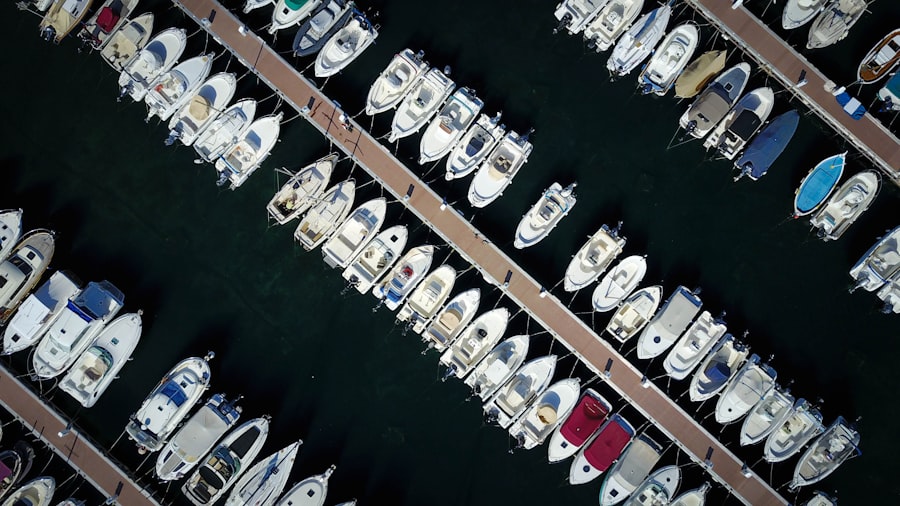Before embarking on the journey of purchasing a boat, it is crucial to first understand your specific boating needs. This involves a thorough assessment of how you plan to use the boat, the types of activities you wish to engage in, and the environments in which you will be operating. For instance, if you envision leisurely weekend outings with family and friends, a pontoon or a cabin cruiser might be ideal.
These types of boats offer ample space and comfort for socializing and relaxing on the water. Conversely, if your interests lean towards fishing or water sports, a fishing boat or a ski boat would be more suitable, as they are designed with features that enhance performance in those activities. Additionally, consider the number of people you typically expect to have on board.
A small fishing boat may suffice for solo trips or outings with one or two companions, but larger gatherings will necessitate a boat with greater capacity. Furthermore, think about the waters you will navigate. Will you be cruising on calm lakes, navigating coastal waters, or venturing into open seas?
Each environment presents unique challenges and requirements for boat design and functionality. By clearly defining your boating needs, you can streamline your search and ensure that the vessel you choose aligns perfectly with your lifestyle and preferences.
Key Takeaways
- Identify your specific boating needs before starting your search.
- Research various boat types to find the best fit for your activities.
- Set a clear budget to guide your purchasing decisions.
- Use Boat Trader’s search tools to efficiently find suitable boats.
- Carefully evaluate used boats and understand ownership transfer procedures.
Researching Different Types of Boats
Once you have a clear understanding of your boating needs, the next step is to delve into the various types of boats available on the market. The diversity of boats can be overwhelming, as they are designed for specific purposes and environments. For example, sailboats are ideal for those who appreciate the art of sailing and wish to harness the wind for propulsion.
They come in various sizes and configurations, from small dinghies to large yachts, each offering a unique sailing experience. On the other hand, powerboats are favored for their speed and ease of use, making them perfect for quick trips or water sports. In addition to sailboats and powerboats, there are also specialized vessels such as catamarans, which provide stability and space, making them popular for both leisure cruising and chartering.
If fishing is your primary focus, you might explore center console boats or bass boats, which are specifically designed for angling enthusiasts. Researching these different types of boats involves not only understanding their design and purpose but also considering factors such as maintenance requirements, fuel efficiency, and resale value. Engaging with online forums, reading boating magazines, and visiting local boat shows can provide valuable insights into the pros and cons of each type.
Setting Your Budget

Establishing a budget is a critical step in the boat-buying process that requires careful consideration of both initial costs and ongoing expenses. The price of a boat can vary significantly based on its type, size, age, and condition. New boats typically come with a higher price tag but may offer warranties and the latest technology.
In contrast, used boats can provide excellent value but may require additional investment in repairs or upgrades. It is essential to determine how much you are willing to spend upfront while also factoring in costs such as insurance, registration fees, maintenance, fuel, and storage. Moreover, financing options should also be explored as part of your budget planning.
Many buyers opt for loans to spread out the cost of their purchase over time. Understanding interest rates and loan terms can help you make an informed decision about financing your boat. Additionally, consider setting aside a contingency fund for unexpected expenses that may arise after your purchase.
By establishing a comprehensive budget that encompasses both immediate and long-term financial commitments, you can ensure that your boating experience remains enjoyable without causing financial strain.
Utilizing Boat Trader’s Search Tools
| Metric | Description | Example Value | Importance |
|---|---|---|---|
| Search Filters Used | Number of filters applied during a search (e.g., price, length, year) | 5 | High – narrows down results effectively |
| Average Search Results | Number of listings returned per search query | 120 | Medium – indicates market availability |
| Search Duration | Average time spent per search session (minutes) | 15 | Medium – reflects user engagement |
| Saved Searches | Number of searches saved for future reference | 3 | High – helps in tracking preferred boats |
| Search Result Click-Through Rate | Percentage of search results clicked by users | 35% | High – indicates relevance of search results |
| Average Price Range Selected | Typical price range set in search filters | 20,000 – 50,000 | High – targets buyer budget |
| Popular Boat Types Searched | Most frequently selected boat categories (e.g., fishing, sailboats) | Fishing, Pontoon | Medium – guides inventory focus |
In today’s digital age, utilizing online resources can significantly enhance your boat-buying experience. Boat Trader is one such platform that offers an extensive database of new and used boats for sale across various categories. Its user-friendly search tools allow potential buyers to filter results based on specific criteria such as type, price range, location, and brand.
This targeted approach saves time and helps narrow down options that align with your defined boating needs. Additionally, Boat Trader provides detailed listings that include photographs, specifications, and seller information. This transparency allows buyers to assess the condition and features of each boat before making contact with sellers.
The platform also offers resources such as articles on boating tips and trends, which can further inform your decision-making process. By leveraging these search tools effectively, you can streamline your search for the perfect boat while gaining access to valuable information that enhances your understanding of the market.
Evaluating the Condition of Used Boats
When considering a used boat purchase, evaluating its condition is paramount to ensuring a sound investment. Unlike new boats that come with warranties and guarantees, used boats may have hidden issues that could lead to costly repairs down the line. A thorough inspection is essential; this includes checking the hull for signs of damage or wear, inspecting the engine for performance issues, and assessing the overall maintenance history of the vessel.
Look for any signs of corrosion or rust, particularly in areas that are prone to exposure to saltwater. It is also advisable to request documentation related to previous maintenance work or repairs performed on the boat. A well-documented history can provide insight into how well the previous owner cared for the vessel.
If possible, consider hiring a marine surveyor to conduct a professional inspection; their expertise can uncover potential problems that may not be immediately visible to an untrained eye. By taking these steps to evaluate the condition of used boats thoroughly, you can make an informed decision that minimizes risks associated with unforeseen repairs.
Negotiating the Purchase

Negotiating the purchase price of a boat is often one of the most daunting aspects of buying a vessel. However, it is an essential skill that can lead to significant savings if approached strategically. Start by conducting thorough research on comparable boats in the market to establish a fair price range based on factors such as age, condition, and features.
This information will empower you during negotiations by providing concrete data to support your offer. When entering negotiations with a seller, it is important to remain calm and composed while expressing genuine interest in the boat. Begin with an initial offer that reflects your research but leaves room for negotiation.
Be prepared for counteroffers and maintain flexibility in your discussions. It’s also wise to highlight any concerns identified during your inspection; this can serve as leverage in negotiating a lower price or requesting additional repairs before finalizing the sale. Ultimately, effective negotiation hinges on clear communication and a willingness to find common ground that satisfies both parties.
Understanding the Transfer of Ownership Process
Once you have successfully negotiated the purchase of your boat, understanding the transfer of ownership process is crucial to ensuring a smooth transition. This process typically involves several key steps that vary by state or country but generally include completing necessary paperwork such as a bill of sale and title transfer documents. The bill of sale serves as proof of purchase and should include details such as the purchase price, date of sale, and identification information for both buyer and seller.
In many jurisdictions, it is also necessary to register the boat with local authorities or maritime agencies after completing the sale. This registration process often requires submitting documentation along with payment for any applicable fees or taxes. Additionally, obtaining insurance coverage before taking possession of the boat is essential; this protects you from potential liabilities while operating your new vessel.
Familiarizing yourself with these steps ahead of time will help ensure that all legal requirements are met promptly.
Enjoying Your New Boat
With all the groundwork laid out—from understanding your needs to navigating ownership transfer—it’s finally time to enjoy your new boat! The thrill of being out on the water is unparalleled; whether you’re cruising along serene lakes or exploring coastal waters, each outing presents an opportunity for adventure and relaxation alike. Embrace this new chapter by inviting friends and family aboard for memorable experiences filled with laughter and camaraderie.
Moreover, consider joining local boating clubs or online communities where fellow enthusiasts share tips and organize events such as group outings or fishing tournaments. These connections can enhance your boating experience by providing opportunities for learning from others while fostering friendships built around shared interests. As you embark on this exciting journey with your new vessel, remember that boating is not just about owning a boat; it’s about creating lasting memories on the water that will enrich your life for years to come.


